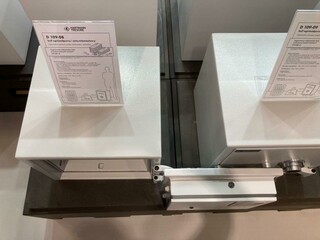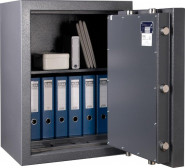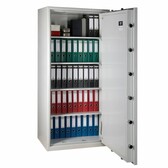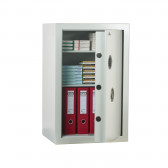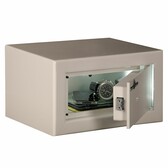When you look around for a small safe for your home or office, you will notice that most safes have external hinges that extend outside the body of the safe. However, there are some models that have the hinges tucked inside. Which are better and why?
Internal hinges
It is not without reason that this type of hinge is most often found in safes with a lighter and more compact design, mostly in the basic classes S1, S2, sometimes in class I. These types of hinges are slightly weaker than the external ones, due to the limited space for them inside the safe. This feature is compensated for by the fact that it is virtually impossible to access them from the outside. Their location is a mystery and a burglar can only guess at their location.
Hiding the hinges inside the safe limits the opening angle of the door to 90 degrees, so door light is reduced and access to the inside of the safe is slightly restricted. On the other hand, such safes have a regular body that allows them to be hidden in shallower furniture, especially if an electronic lock flush with the door panel is used.
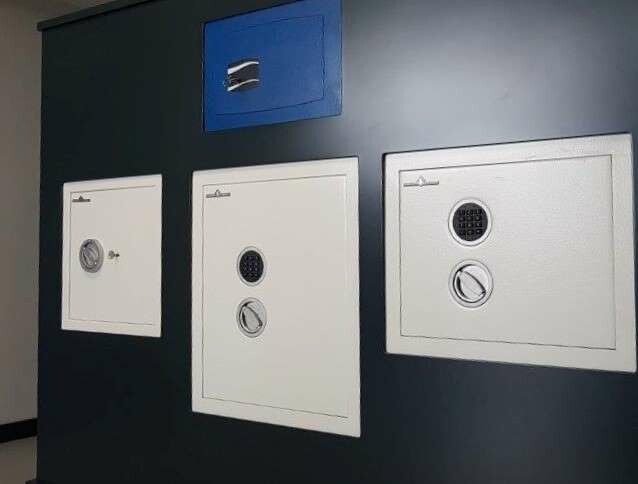
External hinges
This solution is found on high-grade, heavier appliances, including fireproof ones. Bringing the hinges to the outside of the safe is beneficial to a high degree, both from the security side and from everyday use.
Let's start with security. The question is often asked by our customers: since the hinges are in view, are they easy to cut? External hinges are a thick and solid piece of steel, which poses a serious challenge even to a burglar equipped with specialist equipment. However, even if a determined amateur of other people's property were tempted to do so, modern safes have safeguards to prevent the door from being opened once the hinges have been cut.
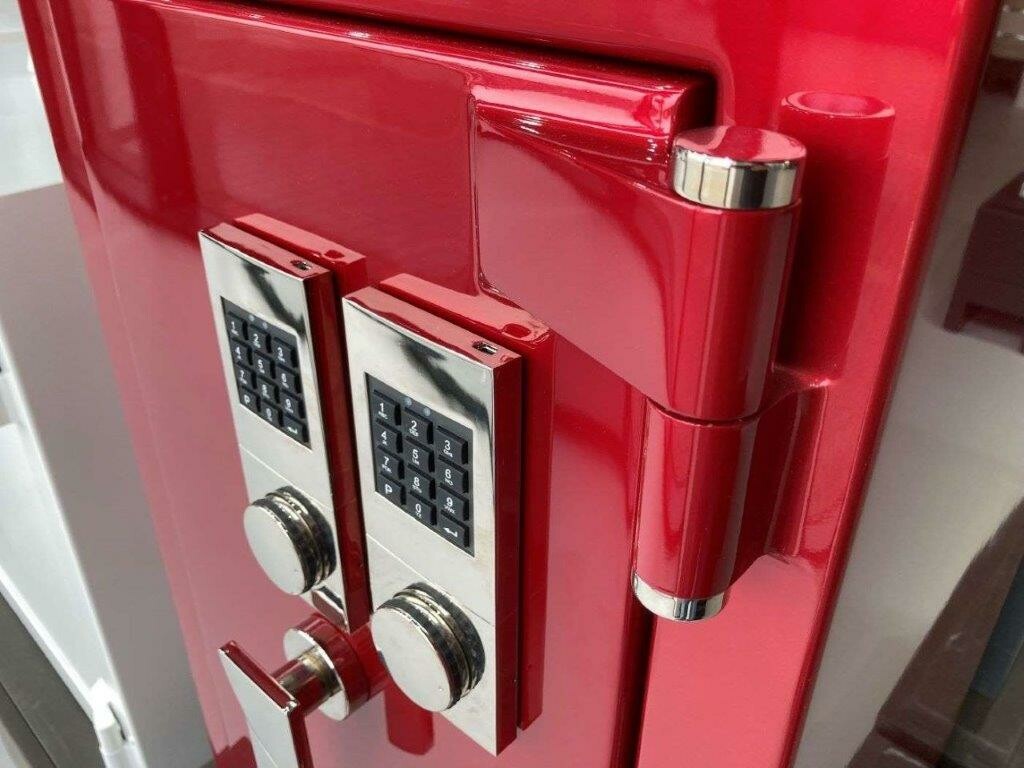
The use of an external hinge also means that the safe's door can be opened ajar, so access to the interior is unrestricted and free. It is worth bearing in mind, however, that the nominal external dimensions of safes do not include hinges, handles or locking hardware. If the safe is to be built-in, this must be taken into account.
The final choice between external and internal hinges is not clear-cut. The decision to buy a high-grade safe means, by definition, an external option, but there may be circumstances where it is the uniform body and shallow depth that determines a model with the hinges retracted inwards. Both options have a common denominator – security, and that is what we care about most.
You may be interested in: The most popular furniture safes
